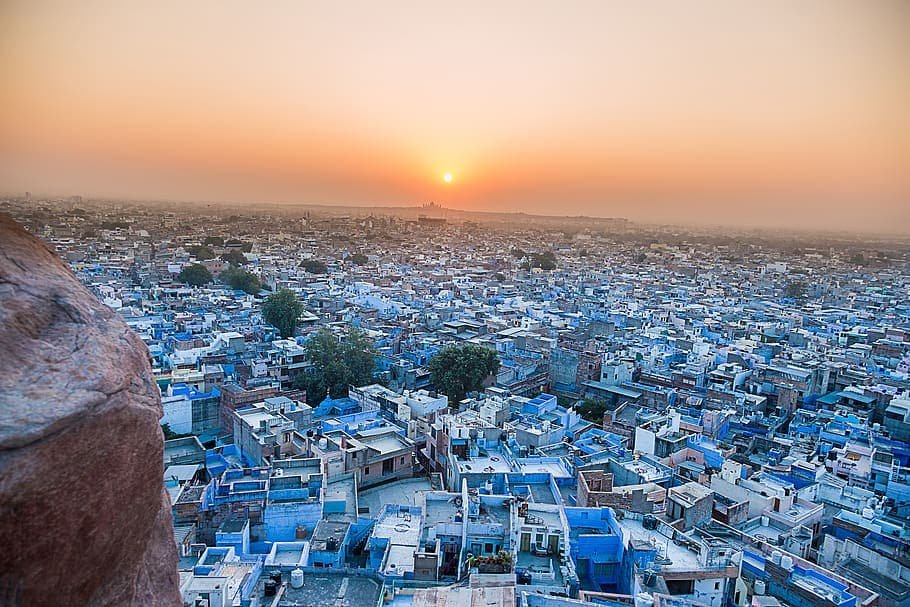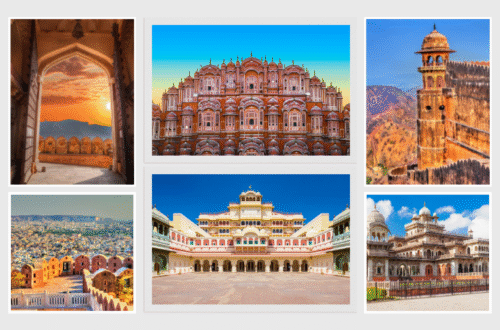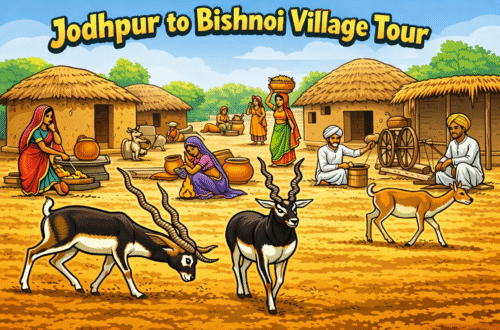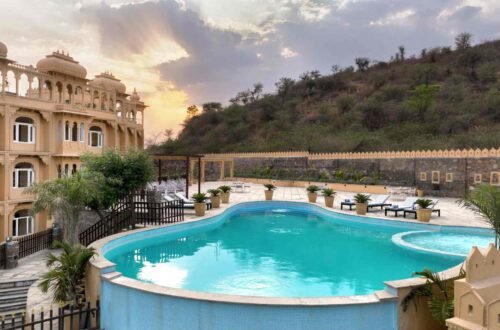Jodhpur, the Blue City of Rajasthan, is a captivating destination that embodies regal splendor, architectural brilliance, and centuries-old traditions. Often described as the gateway to the Thar Desert, Jodhpur offers travelers an enriching glimpse into the royal heritage of Marwar. From majestic forts and palatial residences to bustling bazaars and vibrant festivals, every corner of the city echoes its glorious past. For anyone planning a Jodhpur full day tour, the city promises a tapestry of experiences that blend history, culture, and warm hospitality.
The Royal Legacy of Mehrangarh Fort
At the heart of Jodhpur’s historic charm is the imposing Mehrangarh Fort. Towering 400 feet above the city, it is one of the largest and best-preserved forts in India. Built in the 15th century by Rao Jodha, the founder of Jodhpur, this fort is more than a military stronghold—it is a museum of Rajputana pride. The fort’s intricate carvings, expansive courtyards, and detailed palanquins offer a deep dive into the lifestyle of Marwar’s royal lineage.
The panoramic view from the fort also reveals Jodhpur’s famous blue-painted houses, a visual treat that symbolizes both historical caste markers and practical measures against the desert heat. Exploring Mehrangarh with a local guide can enhance your understanding of its architectural nuances and the valor of its former rulers.
Umaid Bhawan Palace: Where Heritage Meets Luxury
Another architectural marvel is the Umaid Bhawan Palace, a still-functioning royal residence partly operated as a heritage hotel. Commissioned during a time of drought in the 1920s to provide employment to locals, the palace reflects a unique blend of Indo-Deco style and European elegance.
Visitors can explore its museum section, which showcases vintage cars, royal artifacts, and portraits of the Jodhpur dynasty. The palace’s continued association with the Rathore family adds to its authenticity and cultural value.
Clock Tower and Sardar Market: A Walk Through Time
No heritage tour in Jodhpur is complete without a stroll through the old city markets. The iconic Clock Tower stands tall at the entrance of Sardar Market, which bursts with local color and traditional wares. From tie-and-dye fabrics and silver jewelry to spices and handicrafts, the market is a haven for cultural immersion.
The alleys here offer a sensory overload—aromatic street food, vibrant textiles, and the melodic hum of Rajasthani music playing in the background. Local guides or vendors often share folk tales and stories passed down through generations, offering a grassroots perspective of Jodhpur’s vibrant heritage.
Architectural Wonders Beyond the Fort
Jodhpur is dotted with temples, cenotaphs, and stepwells that reflect its architectural diversity. The Jaswant Thada, a marble cenotaph built in memory of Maharaja Jaswant Singh II, is known for its serene surroundings and intricate lattice work. Likewise, the Toorji Ka Jhalra stepwell showcases the engineering acumen of ancient Marwar.
These lesser-known sites often provide quiet moments of reflection and are excellent for those interested in historical architecture and photography.
Culture and Festivals: Living Heritage
What sets Jodhpur apart is its living heritage—the way culture thrives in everyday life. The city is known for its vibrant festivals such as the Marwar Festival and Rajasthan International Folk Festival (RIFF). These celebrations highlight folk music, dance, and traditional attire, turning the city into a grand stage of cultural expression.
Local artisans, performers, and chefs play an active role in keeping the traditions alive. Tourists can participate in workshops, enjoy traditional meals, or watch a puppet show to engage with the culture beyond just observation.
Cuisine: A Royal Affair for the Taste Buds
Jodhpur’s culinary heritage is as rich as its architecture. Influenced by the arid climate and royal tastes, dishes like dal baati churma, ker sangri, mirchi bada, and gatte ki sabzi are prepared with locally sourced ingredients and centuries-old recipes.
For food lovers, local eateries and royal kitchens offer an authentic taste of Rajasthani hospitality. Joining a traditional cooking class or a curated food tour enhances the experience, turning every meal into a cultural lesson.
Planning Your Heritage Experience
Travelers looking to uncover the city’s layered history often turn to a reliable Travel agency in Rajasthan for curated experiences. These agencies provide expert guides, customized itineraries, and insider access to hidden gems that most casual tourists might miss. With proper planning, you can explore Jodhpur’s heritage without feeling rushed, allowing for meaningful interactions and moments of discovery.
Ideal Itinerary: The Classic Marwar Route
For those wishing to deepen their understanding of the region, the Classic Marwar Tour is an excellent way to explore beyond Jodhpur. This tour typically includes nearby cities like Osian, Mandore, and Rohetgarh, each rich in heritage and unique experiences. Whether it’s camel safaris across desert dunes or exploring ancient temples, the Classic Marwar Tour provides a cohesive narrative of Rajasthan’s princely past.
Conclusion: Jodhpur as a Cultural Tapestry
Jodhpur’s popularity as a heritage destination is well-earned. Its combination of majestic forts, royal palaces, lively markets, and enduring cultural practices makes it a jewel in India’s historical landscape. It is not just a city frozen in time but one that breathes through its people, traditions, and continued reverence for the past.
By engaging with local experts, choosing thoughtful tours, and being open to immersive experiences, visitors don’t just see Jodhpur—they live it. The city leaves behind not just memories, but a deeper appreciation for India’s royal and cultural legacy.





